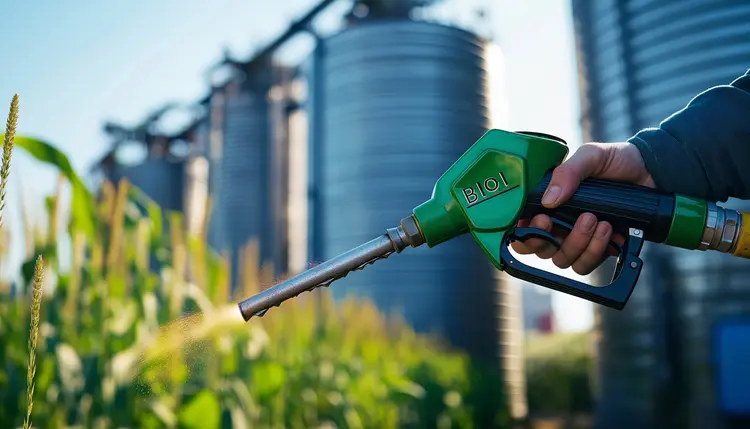Soy consumption in the country is expected to increase from 6 million tons in 2024 to 11.1 million tons in 2030, estimates Abiove
The approval of the Fuel of the Future project, last Wednesday, 11th, is expected to have a significant impact on the agricultural sector, especially in the production of biodiesel. The new legislation, which changes the mixing percentages of ethanol in gasoline and biodiesel in diesel, also brings incentives for green diesel and sustainable aviation fuel (SAF).
With the new measure, Brazilian demand for soybeans, the main raw material for biodiesel production, is expected to grow substantially.
According to exclusive data released to EXAME this Thursday, 12th, by the Brazilian Association of Vegetable Oil Industries (Abiove), soy consumption in the country is expected to increase from 6 million tons in 2024 to 11.1 million tons in 2030 – The growth will also impact the soybean crushing projection, which will increase from 31 million tons in 2024 to 55.8 million tons in 2030.
The project approved by the Chamber establishes that the percentage of ethanol blending in gasoline will be fixed at 27%, with the Executive Branch being able to adjust it between 22% and 35%, according to market conditions – currently, the blend can reach to 27.5%, with a minimum of 18%.
In the case of biodiesel, the current blend of 14%, which has been in force since March this year, will be gradually increased from 2025, with increases of 1 percentage point per year, until reaching 20% in 2030.
Impact on the soy and biodiesel production chain
The soybean crushing process, which transforms the grains into oil and bran, is expected to keep up with the growth in demand. During the process, soybeans are separated from the shell and pressed into flakes, which are soaked in solvent to extract the crude oil – the remaining material is dried and ground to generate soybean meal, used mainly as animal feed.
According to Abiove, biodiesel production in Brazil is expected to more than double in the coming years. The estimate is that the volume will jump from 8 billion liters in 2024 to 16.9 billion liters in 2030, following the gradual increase in the mixture of biodiesel in diesel oil and the growing demand for more sustainable fuels.
Brazil, which is already the world’s main producer of soybean oil, is also expected to break a new record in grain production in the 2024/25 harvest, with a projection of 169 million tons, according to the United States Department of Agriculture (USDA ).
After approval in the Chamber, the project now goes to President Luis Inácio Lula da Silva for sanction. The expectation is that the measure will be ratified without modifications.
“The approved project was built with consensus between all parties involved. It should not suffer any veto or modification by the Executive,” Julio César Minelli, superintendent director of the Association of Biofuel Producers of Brazil (Aprobio), told EXAME.
Furthermore, the proposal obliges airlines to reduce greenhouse gas emissions through the use of sustainable aviation fuel (SAF), starting from 1% in 2027 to 10% in 2037.
The project also regulates the participation of green diesel in the market, with a minimum volumetric mixture of up to 3% per year, as defined by the CNPE. Green diesel is produced from renewable biomass.
Another relevant point is the creation of rules for the geological storage of carbon dioxide (CO2), which will allow companies to request authorization from the ANP to inject CO2 into geological reservoirs, with the aim of mitigating emissions.

